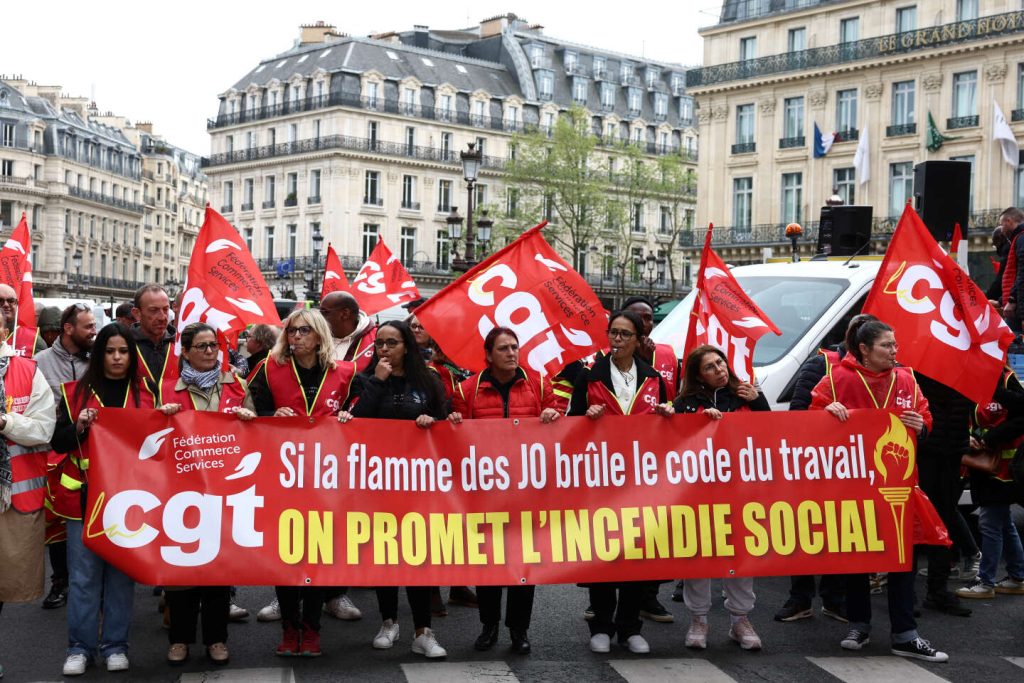Hundreds of workers from the commerce and service sectors protested in Paris on April 15th at the call of the CGT to denounce violations of labor rights during the 2024 Olympics. The protesters, wearing union vests and CGT flags, demanded better working conditions and fair compensation for employees. They criticized the requirement for employees to give up their summer vacations without additional pay, as well as the need for provincial employees to relocate to the Paris region without proper housing. The CGT Secretary-General, Sophie Binet, vowed that the CGT would not stand idly by and allow these injustices to occur.
Binet emphasized that workers must defend their rights and should not have to sacrifice them in the name of the Olympics. She called on the government to engage in a social dialogue and organize a roundtable discussion on the organization of the Games as soon as possible. Employees from various sectors, including security agents, restaurant workers, hotel staff, and retail employees, marched from Opéra Garnier to City Hall, chanting “no social regression during the Olympics.” The protesters expressed their concerns about potential negative impacts on labor laws due to the Olympic Games.
Carrying torches symbolizing the Olympic flame, the protesters marched behind a banner warning of a “social fire” if the labor code is compromised for the Games. The Secretary-General of CGT-Commerce and Services, Amar Lagha, estimated that at least 1,500 people participated in the protest. Laurent Degousée from the SUD union expressed solidarity with the CGT, emphasizing that workers do not want to be exploited for the benefit of the Olympics. Employees from Carrefour, a premium sponsor of Paris 2024, were well-represented at the protest. They voiced concerns about the potential impact on Sunday work volunteering, deregulation of working hours, and understaffing.
In a show of solidarity, several hundred people had gathered on January 17th outside the headquarters of the Olympic organizing committee for a similar protest. They raised concerns about social inequalities and criticized the potential consequences of the Olympics in terms of exacerbating existing issues. As tensions rise between workers and organizers, the need for dialogue and mutual respect becomes even more apparent. The protests serve as a reminder that the pursuit of sporting excellence should not come at the expense of workers’ rights and well-being.
Despite these challenges, the Paris 2024 Olympics provide an opportunity to address and rectify labor issues in France. By engaging in constructive dialogue and collaboration between stakeholders, it is possible to find solutions that uphold both the spirit of the Games and the rights of workers. The protests highlight the importance of proactive measures to safeguard labor rights and ensure fair treatment of employees involved in the organization and execution of major sporting events. As preparations for the Olympics continue, it is essential to prioritize the well-being and rights of all individuals involved, creating a legacy of social responsibility and respect for labor rights.


